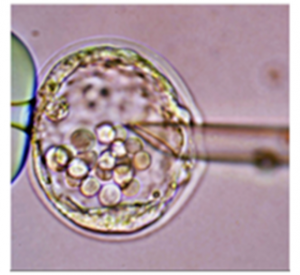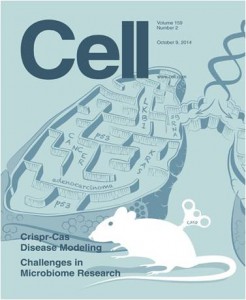Whether you’re hunting for an engaging and useful elective as a first/second year student or soaking up last minute knowledge before jumping into the job/post-doc market, I recommend considering Mouse Transgenic Models and Advanced Mouse Transgenic Models coordinated by Dr. Lucy Liaw of Maine Medical Center Research Center and Tufts Sackler. The aim of the modules is to deepen understanding of molecular biology’s most popular mammalian model organism and help participants design thoughtful and effective in vivo experiments.
The first module giv es an overview of how to develop transgenic models of gene expression and gene targeting plus strategies for phenotypic characterization such models. When I took the course for transfer credit in spring 2015 we learned basic transgenic and gene targeting construct design, conditional and inducible systems, early embryonic mouse development in the context of pronuclear and blastocyst injection, and the effects of genetic background on models. We utilized what we were learning over the course of the module to develop a strategy for making a mouse model of our choice (construct design through phenotype characterization) with discussion of our design at the start of each class.
es an overview of how to develop transgenic models of gene expression and gene targeting plus strategies for phenotypic characterization such models. When I took the course for transfer credit in spring 2015 we learned basic transgenic and gene targeting construct design, conditional and inducible systems, early embryonic mouse development in the context of pronuclear and blastocyst injection, and the effects of genetic background on models. We utilized what we were learning over the course of the module to develop a strategy for making a mouse model of our choice (construct design through phenotype characterization) with discussion of our design at the start of each class.
The second module focuses on cutting-edge techniques currently being used in academic and industry laboratories to generate transgenic animals. Last spring we reviewed genome editing via Zinc finger nucleases, TALENS, and CRISPR/Cas9. The assignment for this module was to revise our previous model employing the more recent techniques.
Both modules utilized lecture, discussion of primary literature, and project development/presentation to ground participants in mouse transgenic biology. The pace was rigorous; we met for 2 hours twice a week for 3.5 weeks per module, yet easy to integrate with benchwork.
These well established modules have been available through the UMaine graduate course catalog for four years and will be directly available to Sackler students starting spring 2017 (look up CMDB 0350 while browsing the Tufts SIS catalog). The UMaine Graduate School of Biomedical Science and Engineering students who have traditionally taken this course rely on a consortium of institutes across Maine for their training. Because of this, the Mouse Transgenics modules are designed to be highly compatible with teleconference style classrooms allowing excellent participant interaction and experience in telecommunication meetings (a skill not to be sneezed at in this era of global collaboration).


